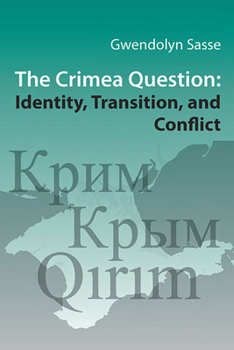The Crimea Question: Identity, Transition, and Conflict
Select Format
Select Condition 
Book Overview
In the early to mid-1990s, the Western media, policymakers, and academics alike warned that Crimea was a potential center of unrest and instability in the aftermath of the Soviet Union's dissolution. However, large-scale conflict in Crimea did not materialize, and Kyiv has managed to integrate the peninsula into the new Ukrainian polity. This book traces the imperial legacies, in particular identities and institutions of the Russian and Soviet period, and post-Soviet transition politics. Both frame Crimea's potential for conflict and the dynamics of conflict prevention. As a critical case in which conflict did not erupt despite a structural predisposition to ethnic, regional, and even international enmity, the Crimea question is located in the larger context of conflict and conflict-prevention studies.
Format:Paperback
Language:English
ISBN:1932650121
ISBN13:9781932650129
Release Date:April 2014
Publisher:Harvard University Press
Length:384 Pages
Weight:1.25 lbs.
Dimensions:0.9" x 6.0" x 9.0"
Customer Reviews
0 rating





